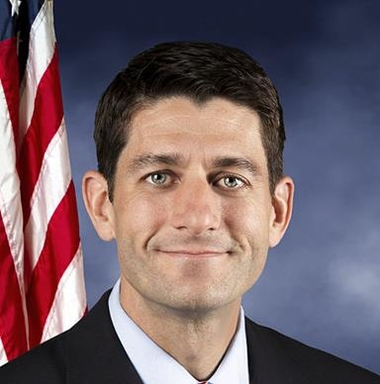Cynical Ryan budget set for symbolic House vote

Washington (AP) — House Republicans marched ahead Thursday with an election-year budget promising to balance the government's books with wide-ranging cuts in programs like food stamps and government-paid health care for the poor and working class, taking a mostly symbolic swipe against the government's chronic deficits.
The plan heading for a vote Thursday is a nonbinding framework aimed more at engaging GOP voters than rival Democrats. The follow-up legislation is likely to be limited to a round of annual spending bills that will adhere to a bipartisan budget pact enacted in December.
A close vote is expected since some conservatives are unhappy over the higher spending levels for 2015. Top GOP leaders were actively working to collar stragglers as the House voted on an amendment Thursday morning.
The measure written by Budget Committee Chairman Paul Ryan, R-Wis., paints a picture of what Republicans would try to do if they claim the Senate this fall and the White House in 2016.
But its cuts to popular benefit programs like food stamps, Medicare and Medicaid would be difficult to pass even if Republicans gain control of both the House and Senate in this fall's elections.
Democrats are seizing on the debate to cast Republicans as cruelly cutting programs that keep people out of poverty and help sustain the middle class.
"It's totally out of touch with the priorities and values of the country," said Rep. Chris Van Hollen, D-Md. "This is a clear road map of what Republicans in Congress would do if they had the power to do it."
Republicans say the tough cuts they promise would strengthen the economy because less government borrowing would boost savings and investment. And they say it's simply unfair to saddle future generations with mountains of debt.
"The sooner we tackle these fiscal problems, the better off everybody is going to be, the faster the economy grows, and the more we can guarantee that the next generation inherits a debt-free future," said Ryan.
At issue is the arcane congressional budget process, which employs a nonbinding measure known as a budget resolution to set forth goals for future taxes, spending and deficits. But follow-up legislation is usually limited to one-year appropriations bills rather than more difficult measures to deal with the government's long-term fiscal challenges, which are fueled by spiraling health care costs and the retirement of the baby boom generation.
Ryan's plan revives a now-familiar list of spending cuts to promise balance, including $2.1 trillion over 10 years in health care subsidies and coverage under the Affordable Care Act; $732 billion in cuts to Medicaid and other health care programs; and almost $1 trillion in cuts to other benefit programs like food stamps, Pell Grants and farm subsidies.
Even though it would repeal the Affordable Care Act's benefits, Ryan's plan would preserve its tax increases and cuts to providers, including cuts to private insurers under the Medicare Advantage program. Republicans have attacked Democrats for the Medicare cuts used to finance the new health care law.
The measure also promises deep, probably unrealistic cuts to domestic programs like education, health research and grants to local governments that are funded each year through annual appropriations bills.
As in the past, Ryan has steered clear of cuts to Social Security, and he promises steady increases for veterans and restoration of looming defense cuts. But he faces a more challenging task to promise to balance the budget by decade's end than he did last year because the Congressional Budget Office projects lagging revenues.
Steep cuts to Medicaid, which Ryan proposes to turn into a block grant program managed by the states, could drive millions of people from the program, including seniors in nursing homes and children from low-income households.
Ryan's plan also reprises a failed strategy from last year to cut domestic agency operating budgets and shift the money to the Pentagon after 2015. When Republicans tried that last year, the House was unable to pass the follow-up spending bills implementing the cuts.
Earlier versions of Ryan's plan have passed the House three times since the GOP won control of the chamber following the 2010 midterm elections. Like the others, this year's plan would require people who enroll in Medicare in 2024 to be given a subsidy — called "premium support" by Republicans, derided as a voucher system by Democrats — with which they would purchase health insurance on the open market.
Republicans say the system is required to prevent the budget from spiraling out of control as more baby boomers retire and the present system collapses. They also say the redesigned Medicare program would offer seniors more choices and curb costs. Critics, however, say the Medicare subsidies won't keep up with inflation and will require sharply higher out-of-pocket costs for future seniors.
by Andrew Taylor, Associated Press
Copyright 2014 The Associated Press. All rights reserved. This material may not be published, broadcast, rewritten or redistributed.
The Gayly – April 10, 2014 @ 10:30am





